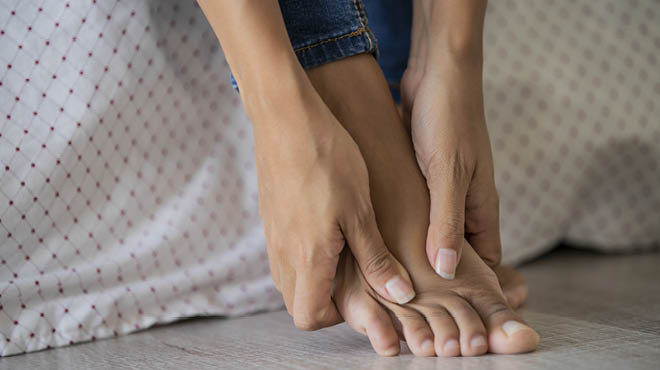Recent Posts
Why does my shoulder ache?

If you find yourself rubbing your shoulder after reaching up to take a coffee mug off the shelf, hammering in a nail just over your head or climbing into a pickup cab, you're among millions of Americans — particularly those over 60 — with a shoulder issue. Shoulder pain could be a sign of arthritis, tendonitis, a rotator cuff tear or shoulder instability.
Whatever the cause, you may want to consult with an orthopedic professional. That first meeting will include a health history, physical exam and possibly an X-ray to determine the underlying cause and extent of your shoulder issue. Sometimes additional imaging, such as an MRI, may be needed.
Your orthopedic professional will walk you through treatment options and help you decide what may be the best for you.
The first line of treatment can include:
- Taking over-the-counter anti-inflammatory medications
- Resting of the affected shoulder and arm
- Icing the shoulder
- Modifying your activities to avoid further injury
- Undergoing steroid injections
- Doing physical therapy to strengthen the muscles of the shoulder and arm
Many studies show that people with shoulder injuries respond well to these treatments and are able to go about their daily activities. However, if you're still experiencing pain and weakness, your orthopedic professional may recommend surgery.
One cause of pain and weakness is a rotator cuff tear. The rotator cuff is a group of muscles and tendons. It holds the shoulder joint in place and assists in arm motion and strength. If the MRI reveals a tear in the rotator cuff, it may require surgery, although the vast majority don't.
Surgery typically is outpatient, and you can go home the same day. In this procedure, the surgeon inserts a tiny camera called an arthroscope and tools through small incisions to reattach the torn tendon to the bone. You may need to wear a sling for four to six weeks following surgery to allow your shoulder to heal.
After four to six weeks, you may still have some work restrictions and need to modify your activity. Your orthopedic professional also may recommend physical therapy.
Whether you respond to noninvasive treatments or need surgery, your orthopedic professional's goal is to relieve your aching shoulder so you can go about your daily activities without pain or restrictions.
By Mayo Clinic Health System staff





